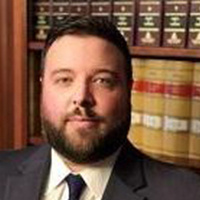Burlington Felony Lawyer, Connecticut
Sponsored Law Firm
-
 x
x

Click For More Info:
-
Barry, Barall & Spinella, LLC
989 Main St Manchester, CT 06040» view mapCriminal Defense Law Your Future Matters To Us
At Barry, Barall & Spinella, LLC, our only goal is to protect your best interests. We are accomplished attorneys whose focus is handling criminal defense & personal injury claims.
800-998-0430
Not enough matches for Burlington Felony lawyer.
Below are all Burlington Criminal lawyers.
Steven Howard Levy
✓ VERIFIEDAttorney Levy earned his B.A. from the State University of New York at Buffalo, and his J.D. from Antioch School of Law. He was admitted to the Connec... (more)
Robert A Salerno
✓ VERIFIEDRobert A. Salerno attended Law School and received a B.S. from High Point University in 2005 and his Juris Doctor in 2009 from Touro Law Center. He wa... (more)
 Ryan P. Barry Manchester, CT
Ryan P. Barry Manchester, CT Practice AreasExpertise
Practice AreasExpertise


